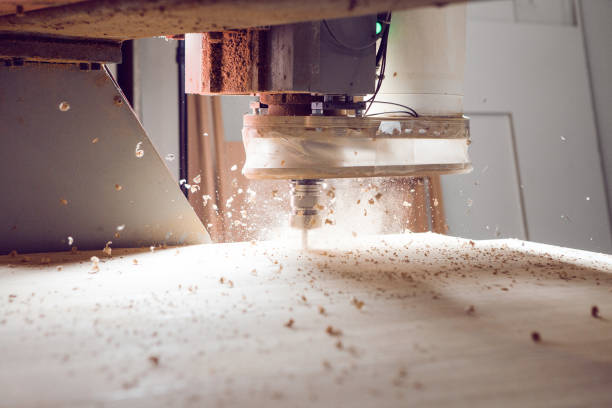Every machinist will testify that the strength and performance of a CNC machine is imperative to achieving smooth operations in manufacturing. Every piece of equipment, regardless of size, must therefore be maintained to prevent damage to parts, downtime and total equipment failure. To prolong the life of your CNC machine, proper checks and maintenance should be performed in a timely manner.
When CNC machine operation is interrupted, the cost implications can be severe; time-sensitive processes can be damaged, fuel costs can lead to low returns on investment, the cost of complete replacement can be very high, and spare parts may not be nearby. In order to mitigate your operational risks and avoid breakdowns, you should undertake regular maintenance to reduce costs and keep your machines in top condition. As with everything in life, prevention is better than cure. Here’s a look at our quick tips for preventing CNC machine maintenance.
- Schedule regular maintenance
One of the best preventative practices is to undertake regular, scheduled maintenance regardless of the condition of your equipment. Rather than waiting for problems to arise with your machine, schedule checks based on your equipment’s usage pattern and on a periodic basis. You can choose to perform general maintenance every 90 days or after 5,000 units of a product have been manufactured.
Regular maintenance drills will help detect potential or developing problems and ensure that your machine is always operating at its optimum capacity.
- Use an employee verification system
Even with their high levels of automation, CNC machines require a reason for human interaction when needed. Since the work is most likely to be performed in all departments, you should establish an employee control system that makes the machine operator most responsible for evaluating the strength and performance of the machine. ‘Equipment.
Besides the fact that the employee verification system holds people accountable for maintenance, using the operator assigned to the equipment allows you to quickly identify the potential problem because he understands the condition and the machine performance. It also means that they will be able to assess performance variations and identify problems more quickly.
- Lubricate frequently
Machines large and small all consist of some form of moving parts in the motor, gear, handles and shaft. These parts often generate a frictional force that leads to progressive wear. To control this wear, CNC machines must be properly and generously greased to slow down depreciation and heat buildup.
CNC machines also depend on hydraulic fluids and coolants for efficient performance. Use your machine manuals to determine the best oils, greases and fluids to keep your equipment running smoothly. Also, keep track of your unit’s fluid consumption rate, as fast-drying fluids and lubricants are often the result of high operating temperatures, weather conditions, or, most likely, engine problems.
- Clean your gear
Cleaning of equipment should be done daily in every machine shop. Be sure to clean the shavings from the pan after production and wipe the stains on your machine part to avoid permanent stains.
For door glass and lighting, be sure to wipe down with a clean, smooth cloth to keep the inside of your machine visible. Lower parts of machines are often hubs for spiders, sweep to remove any spider webs present.
Every 40 hours, clean your CNC control cabinet air filter and coolant reservoirs. Change used oils and lubricants every 150 hours and remove the jaws and chuck from your machine to remove stuck parts.
- Know how to replace old equipment
No matter how well you maintained a piece of equipment, it would come to the end of its lifespan. Most machine shop owners are generally averse to removing or rotating old equipment from their shops. For some people it’s a matter of feeling, for others they just seem to believe that they probably haven’t taken advantage of the equipment enough. Either way, each machine will require more and more maintenance as it nears its end. The best practice is to depreciate your machinery over a period of time and dispose of it when you can salvage a reasonable amount of it. The proceeds of the sale should then be linked to another newer and more sophisticated mechanism. In this way,
At madeinnoble, our manufacturing CNC low volume machining is all top-of-the-line, best-in-class equipment to deliver production parts faster, faster, and more responsively. If you don’t have a CNC shop of your own and looking to run a prototype or small quantity for your new or existing project, we invite you to partner with us. is all top-of-the-line, best-in-class equipment to deliver production parts faster, faster, and more responsively. If you don’t have a CNC shop of your own and looking to run a prototype or small quantity for your new or existing project, we invite you to partner with us.is all top-of-the-line, best-in-class equipment to deliver production parts faster, faster, and more responsively. If you don’t have a CNC shop of your own and looking to run a prototype or small quantity for your new or existing project, we invite you to partner with us.

